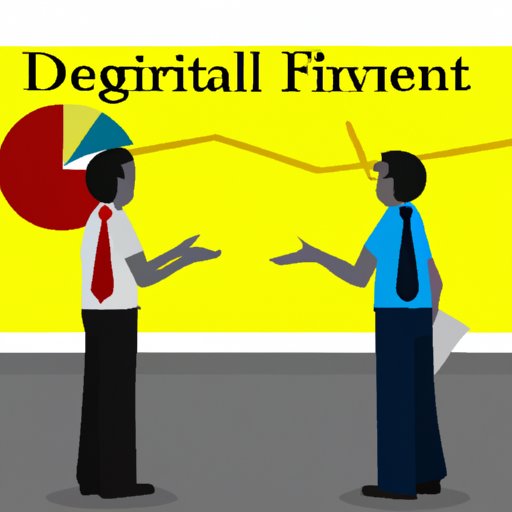Introduction
Debt can be overwhelming and difficult to manage on your own. Working with a financial advisor can help alleviate some of this stress by providing guidance and advice on how best to manage your finances and pay off any existing debts. But what does a financial advisor do to help with debt, and how can you find one that’s right for you? This article will explore these questions, so you can make an informed decision about whether or not to enlist the help of a financial advisor.
Definition of Financial Advisor
A financial advisor is a professional who provides advice and guidance on financial matters such as investments, taxes, retirement planning, estate planning, and debt management. They are typically licensed and regulated by the state or federal government, and may specialize in specific areas such as investing, retirement planning, or debt management.
Overview of Benefits of Working with a Financial Advisor to Help Manage Debt
Working with a financial advisor to help manage debt can provide numerous benefits. For starters, they can assess your current financial situation and develop a plan of action to help you pay off your debt in a timely manner. Additionally, they can negotiate with creditors on your behalf to reduce interest rates and other fees associated with your debt. Furthermore, they can help you restructure your debt, consolidate multiple loans into one, and create a budget to help you stay on track with your payments.

How to Choose the Right Financial Advisor to Help With Debt
When selecting a financial advisor to help with debt, there are several factors to consider. First, it’s important to research the advisor’s credentials and experience. Look for someone who is experienced in dealing with debt management and has a proven track record of successfully helping clients pay off their debts. Additionally, check what type of fees the advisor charges and whether or not they offer services that fit your needs. Finally, make sure the advisor is licensed and registered with the appropriate regulatory body.
Strategies a Financial Advisor Can Use to Resolve Debt Issues
A financial advisor can use a variety of strategies to help you manage your debt. These include consolidation of debts, negotiating lower interest rates, and restructuring of debts. Consolidation involves combining multiple loans into one loan with a lower interest rate, which can make it easier to manage payments. Negotiating lower interest rates can help reduce the amount of money you owe each month, while restructuring of debts involves rearranging your payment schedule to reduce the amount of money you need to pay back each month.

Tips for Working With a Financial Advisor to Get Out of Debt
When working with a financial advisor to get out of debt, there are a few tips to keep in mind. First, establish clear goals and objectives for your debt repayment plan. This will help ensure you are both on the same page and have a shared understanding of what needs to be done to achieve your desired outcome. Second, understand the fees and services the advisor offers, as well as any additional costs associated with their services. Finally, monitor your progress regularly to ensure you are staying on track with your debt repayment plan.

The Role of a Financial Advisor in Negotiating Lower Interest Rates on Debt
When it comes to negotiating lower interest rates on debt, a financial advisor can play an important role. They can help you understand the process, know your rights, and leverage your position to get the best deal possible. Understanding the process can help you determine which creditors are willing to negotiate, and knowing your rights ensures you don’t get taken advantage of during the negotiation process. Leveraging your position means using the information you have to your advantage to get the lowest possible interest rate.
Understanding Financial Advisors’ Roles in Helping to Restructure Debt
Financial advisors can also help you restructure your debt. This involves assessing your current situation, developing a plan of action, and implementing the plan. The advisor can help you identify areas where you could cut back on spending, as well as any potential opportunities to increase income. They can then use this information to develop a plan of action and work with you to implement it. This may involve consolidating multiple loans into one, negotiating lower interest rates, and restructuring payments to make them more manageable.
Conclusion
Working with a financial advisor to help manage debt can be a great way to reduce stress and improve your financial situation. They can provide guidance and advice on how best to pay off your debts, and can even negotiate with creditors on your behalf. When selecting a financial advisor, it’s important to research their credentials and experience, understand their fees and services, and monitor progress regularly. By following these tips, you can ensure you’re working with the right financial advisor to help you get out of debt.
In conclusion, a financial advisor can be a valuable resource when it comes to managing debt. They can assess your current financial situation, develop a plan of action, and negotiate with creditors on your behalf. By doing so, they can help you save money and get out of debt faster. So if you’re struggling with debt, don’t hesitate to reach out to a financial advisor to see how they can help.
(Note: Is this article not meeting your expectations? Do you have knowledge or insights to share? Unlock new opportunities and expand your reach by joining our authors team. Click Registration to join us and share your expertise with our readers.)
